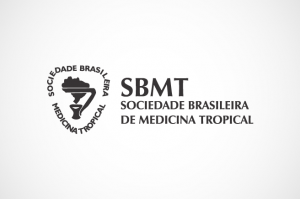

It is with great regret that, every day, we have witnessed death records in Brazil by
Covid19 being overcome day after day. We have already counted more than
260.000 lives lost, many of which could have been prevented if effective sanitary
measures and coordinated public policies had been implemented to mitigate the
spread of the virus.
We, area coordinators of the College of Life Sciences at CAPES, express our
sympathy and solidarity with all families that have lost their loved ones. At this
moment in our history, as researchers in the areas of Life and Health, we could not
fail to speak out and ask for the preservation of the life of the Brazilian people,
above any other priority.
We emphasize that a large part of the research that helped us to understand
several aspects of Covid-19 is carried out in the Postgraduate Programs in the Life
Sciences Area, from the most fundamental aspects of the biology of the virus, to
studies in the area of public health and epidemiological research. These and other
researches relevant to the countrys sovereign development are now threatened by
cuts in research funding made in recent years in Brazil. In addition, these
researches carried out in these Graduate Programs are conducted by masters,
PhD and post-doctoral students, and, in the same way, the number of these
scholarships has also been reduced in recent years, compromising future
generations of researchers in Brazil.
It is also important to highlight the role that the Unified Health System (SUS) has
played in facing this public health crisis, in spite of all the budget cuts that they
have suffered, cuts that are largely due to EC 95, which has placed us in a budget
straitjacket, preventing necessary life-saving expenditures from being made.
In this way, we area coordinators joined with so many other voices of protest and
indignation and ratified the need for the following urgent measures in Brazil:
1. Mass vaccination of the population and at a faster rate than occurred until the
present moment, since this is the only effective strategy to contain the evolution of
the pandemic. Vaccine yes, and now, and for everyone!
2. While we are unable to implement the vaccination of the entire population, it is
essential to reinforce the adoption of sanitary measures that reduce the rate of
contagion of the disease, which may, even if necessary, include partial or total
closure of non-essential trade, schools and services in cities where the health
system approaches collapse, to avoid loss of life due to lack of care. These harsh
and bitter measures are necessary to reduce the spread of the virus, the speed
with which new cases appear and, mainly, to reduce the chances of the
appearance of new variants of the virus;
3. Reinforcement through national advertising campaigns emphasizing the
imperative need to adopt the sanitary measures recommended by the main world
health agencies such as social distance and the use of personal protective
equipment, such as masks;
4. Definitive ban on innocuous and deceptive drug treatments for the prevention of
coronavirus infection propagated on social media, for which there is no scientific
evidence of its effectiveness. Only vaccination and preventive health measures
have this scientifically proven role;
5. Greater budgetary allocation that allows the financing of research and scholarship activities for graduate students in the country, preventing research
groups and Graduate Programs from falling apart and brains from being lost and;
6. Greater budgetary allocation to SUS, the largest public health system in the
world, which needs to be able to guarantee quality care to its users, especially
during this pandemic, preventing doctors from having to make unimaginable and
inhuman “Sophies Choices”.
The area coordinators of the College of Life Sciences of CAPES express their full
support for the Charter of the Front for Life, organized by numerous class entities.
Science, Health and Life are our causes.
College of Life Sciences
– Food Sciences
– Agricultural sciences
– Veterinary Medicine
– Animal Science / Fishery Resources
– Biodiversity
– Biological sciences I
– Biological sciences II
– Biological sciences III
– Physical Education
– Nursing
– Pharmacy
– Medicine I
– Medicine II
– Medicine III
– Nutrition
– Dentistry
– Public Health










